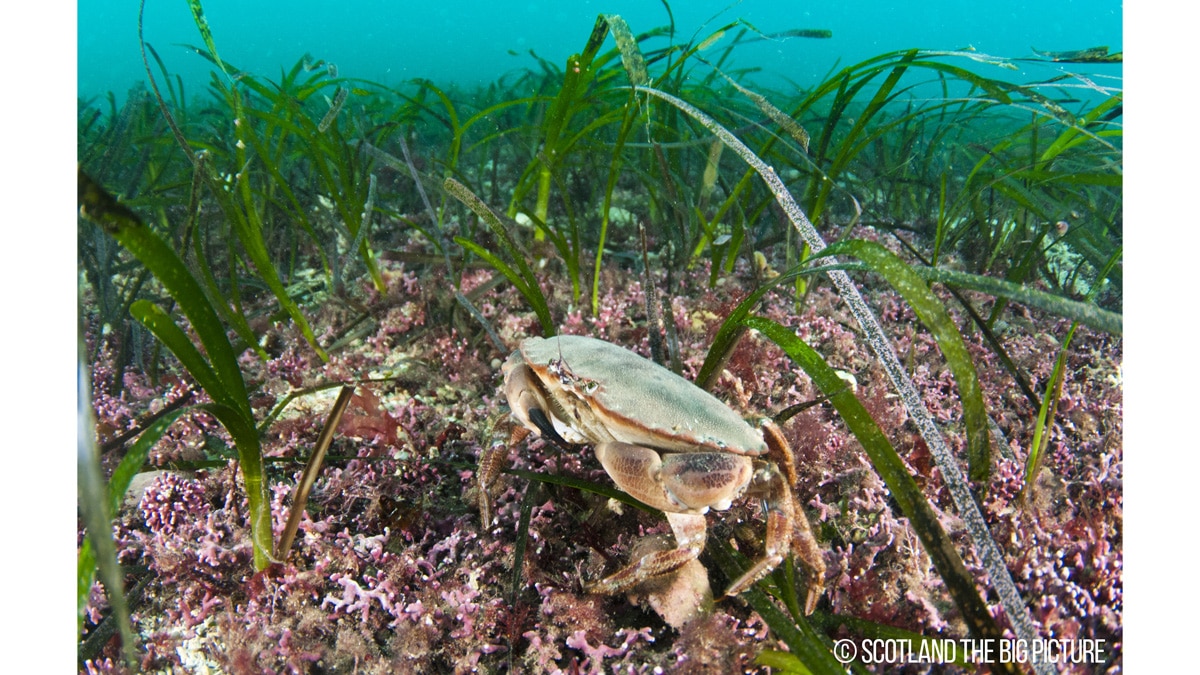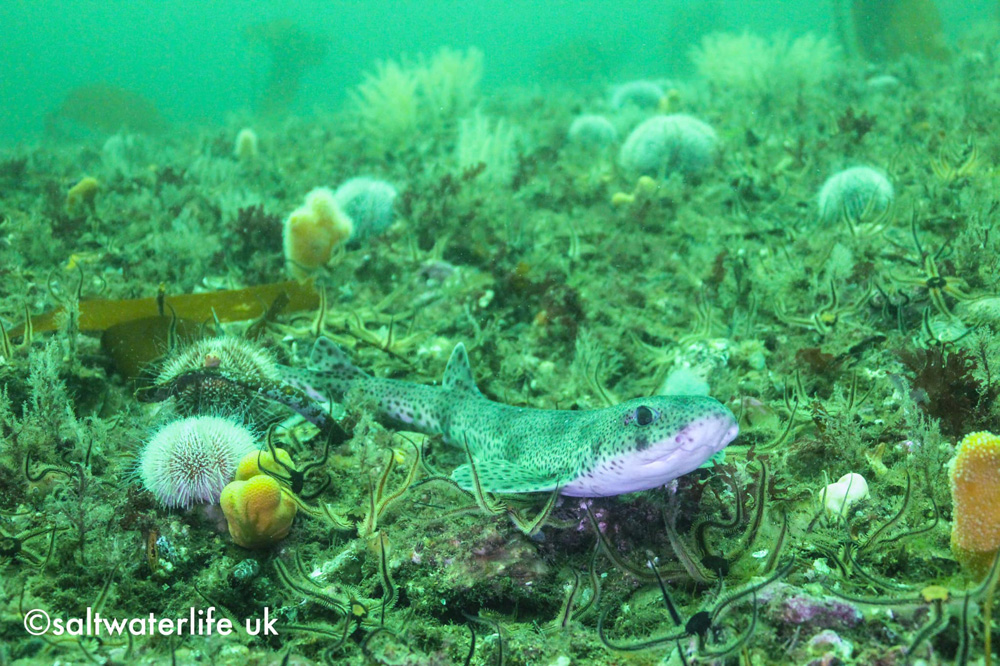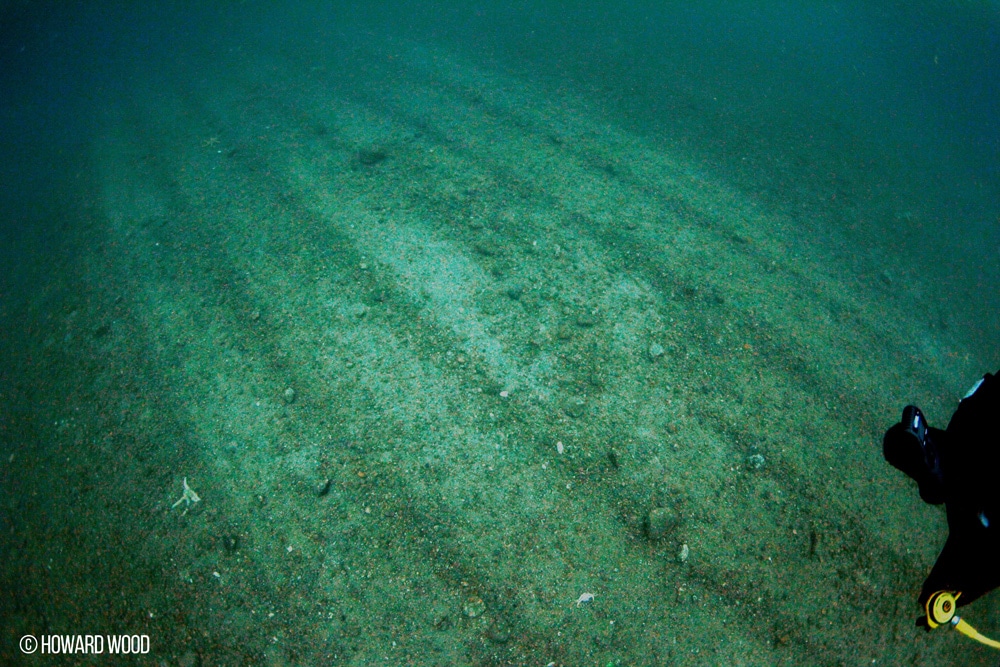Marine Life & Conservation
Habitat and fisheries decline sparks calls for coastal recovery

A new assessment reveals that carbon-rich seabed habitats are continuing to decline in the Highland and Islands region, prompting calls for urgent action by the Our Seas coalition.
According to the Scottish Marine Assessment 2020, many hectares of habitats around Scotland’s coasts have been lost in the last ten years alone. A campaign to recover the health of Scotland’s coastal seas has now gathered momentum with over 90 concerned organisations and local businesses calling on the Scottish Government to take urgent action to halt and reverse the damage being done to our inshore seabeds by bottom-towed fishing gear. The coalition supports the reinstatement of an inshore limit on bottom-trawling to recover the health of Scotland’s fish populations and safeguard sustainable fisheries.
The Our Seas coalition was established in response to decades of decline in Scotland’s inshore fisheries and in particular steep declines in the spawning stock of fish such as cod and whiting on the west coast, as a result of a century-long ban on bottom-trawling within three miles of the shore being removed in 1984. In less than a year, over 90 community groups, businesses and national organisations have joined the Our Seas coalition.
The members of Our Seas coalition argue that recovery of fish populations and habitats is impossible unless the causes of those declines are addressed by the Scottish Government and that the pressures of Brexit and the covid pandemic are laying bare long-standing problems in the health of Scotland’s fisheries. The coalition is now raising further public awareness and has launched a new documentary film ‘The Limit.’
Ailsa McLellan coordinator of Our Seas said: “We have accepted the chronic decline in our fisheries for too long; now we must address the causes.This is a hidden biodiversity crisis on our doorstep, some of the habitats being lost are significant carbon sinks, they must be protected and allowed to recover. There is overwhelming evidence that coastal nursery and spawning grounds are damaged by bottom towed fishing gear, and that this has directly contributed to a decline in marine life and the historical collapse of many fish populations. These declines are the fault of ineffective fisheries management, not the fishermen. Declines cannot be reversed until the Scottish Government reintroduces spatial management and incentivises a transition away from the use of intensive fishing gears close to shore”.
“Brexit and the pandemic have exposed the desperate situation for our coastal fisheries who currently have little chance to diversify. Many within the inshore fleet now rely on shellfish, when in the past they would have been able to catch a variety of fish species. Conservation need not be at the expense of jobs, there are examples at home and internationally of conservationists and fishermen working together to benefit both fisheries, communities and the environment.’’
The calls for coastal recovery, organised by the Our Seas coalition, has been further boosted by a judge’s ruling last month that the Scottish Ministers acted illegally in rejecting a proposed fisheries no-trawl pilot scheme off the coast of Skye. The pilot was designed to provide important evidence on the ecological and economic benefits of lower impact creel fishing when compared to bottom-trawl fishing.
In a case brought by the Scottish Creel Fishermen’s Federation (SCFF), High Court Judge Lady Poole said Ministers had not taken into account their own guidance and instructed them to “properly reconsider” the scheme. The SCFF had claimed Marine Scotland had listened only to opposition from the trawling industry. In the face of further ministerial resistance, Lady Poole this week said she would, if necessary, order them to take action.
Alistair Philp of SCFF, which took the case said “The evidence that this Pilot will provide will greatly add to our understanding of how restricting the use bottom-towed fishing gears can have very positive economic as well as environmental benefits and I would urge the Scottish Ministers to give it the go-ahead. This could provide a template for how to sustainably manage and revive our inshore fisheries.”
The ruling follows the publication in January of an economic report by SCFF which gives a detailed account of how an inshore limit on trawl activity could add another 450 creel boats and thousands of new high quality fishing jobs.
Our Seas is currently organising a public petition which can be signed on its website https://www.ourseas.scot
Marine Life & Conservation
Paul Watson Released as Denmark Blocks Japan’s Extradition Bid

Renowned anti-whaling activist Paul Watson has been released from custody in Greenland after spending five months in detention. Denmark’s Justice Ministry rejected Japan’s request for his extradition, citing insufficient guarantees that his time already served in custody would be credited against any potential sentence.
The 74-year-old Canadian-American was arrested on July 21 in Nuuk, Greenland’s capital, when his ship docked to refuel. His arrest was based on a 2012 Japanese warrant related to a 2010 encounter in Antarctic waters. Japan alleged Watson obstructed operations and caused damage to a whaling research ship during efforts to disrupt illegal whaling. Watson has consistently denied these claims, maintaining his commitment to marine conservation.
Denmark, which oversees extradition matters for Greenland, concluded that while the legal conditions for extradition were met, the lack of assurances from Japan regarding time-served credit made extradition untenable.
In a video shared by his foundation, Watson expressed gratitude and relief, saying, “After five months, it’s good to be out… and good to know they’re not sending me to Japan.” He added that the most difficult part of his time in custody was being separated from his two young sons.
Watson is a pioneering figure in marine conservation, known for founding the Captain Paul Watson Foundation in 2022 after decades of activism with the Sea Shepherd Conservation Society. His bold efforts to defend marine life have earned him widespread support, including from celebrities and conservationists. His work has also been featured in the acclaimed reality TV series Whale Wars.
Watson’s lawyer, Jonas Christoffersen, praised the decision, stating, “We are happy and relieved that Paul Watson is now free.” He added that Watson is eager to reunite with his family and continue his vital work.
The arrest occurred while Watson’s vessel, the M/Y John Paul DeJoria, was en route to the North Pacific with a team of 26 volunteers to intercept a Japanese whaling ship. His foundation described the arrest as politically motivated and emphasized that Watson’s actions were focused on ending illegal whaling practices.
Japan resumed commercial whaling in 2019 after leaving the International Whaling Commission, asserting that whale meat is a cultural tradition. Conservationists, however, continue to challenge these practices, highlighting their impact on marine ecosystems.
Despite the challenges, Watson remains steadfast in his mission to protect marine life and bring attention to whaling practices. His dedication to ocean conservation has made him a globally respected advocate for the environment.
Marine Life & Conservation
12 Days of Zero-Waste Fish-mas

This holiday period, the Marine Conservation Society, the UK’s leading ocean membership charity, invites you to make some simple changes to eating fish this Christmas to help our seas.
Dr Kenneth Bodles, Head of Fisheries and Aquaculture at the Marine Conservation Society, said, “During the festive season, our consumption increases, but so does waste. Sustainability isn’t just about where food comes from – it’s also about how you use it. By reducing waste and making the most out of your seafood, you’re not only taking steps to be more ocean-friendly, but can also help to cut costs during what is often one of the most expensive times of the year”.
The Marine Conservation Society has compiled twelve tips on how to consume seafood sustainably with zero-waste this Christmas:
Buy whole fish instead of fillets
Instead of fillets, consider buying whole fish such as salmon, hake, or lemon sole. By adopting a “nose to tail” approach with cooking, whole-baked fish not only feeds a crowd, but also helps to minimise waste and maximise sustainability by using up every part of the animal, including bones, skin, and fat.
Make fish stock
Leftover fish bones or shells can be put to good use by boiling them to make a nourishing fish stock or bisque. This can be frozen and preserved for later use and makes for a flavourful base in a soup.
Make your own fish pâté
Avoid waste by turning leftover fish, such as smoked mackerel or salmon, into a delicious pâté by blending with cream cheese and lemon. Perfect when paired with crackers.
The sustainability of salmon and mackerel varies depending on where and how it is caught or farmed. For more information on green-rated options, check the charity’s Good Fish Guide.
Buy frozen
By purchasing seafood that is frozen or vacuum-packed, this helps to reduce waste by extending the shelf life of your food.
Fish pie
If you’re wondering what to do with leftover cooked fish, why not opt for a classic fish pie with mashed potatoes, leeks, and a cheesy sauce? A sure crowd pleaser on Boxing Day.
Use the head
Don’t forget the fish head! The meat is incredibly tender and flavourful. The charity recommends a cod’s head curry or recreating Fallow’s renowned cod’s head in siracha butter.
By stretching your ingredients further, not only is this a more sustainable way to enjoy seafood, but also cost-effective by repurposing leftovers and cooking creatively.
Boxing Day brunch
Mix leftover kippers or smoked salmon with scrambled eggs for a tasty, zero-waste, Boxing Day brunch.
For best choice, make sure you buy kippers, or herring, from the North Sea and the North Irish Sea.
Zero-waste storage
A top tip from the Marine Conservation Society to avoid waste is freezing fish offcuts to save for future use.
Crisp up the skin
Even leftover fish skin can be turned into a quick savoury snack by crisping it up in an air fryer with a little olive oil and salt.
Anchovies two ways
Leftover anchovies can either be blended with butter to make a delicious anchovy butter or tossed into pasta for a hit of umami flavour.
The charity recommends opting for anchovies caught in the Bay of Biscay for best choice.
Fishcakes
For an easy, zero-waste meal, leftover seafood trimmings can be mixed with mash and fried in breadcrumbs to make fishcakes.
Pickled mussels
Try pickling mussels in 1:1 vinegar and water, with a dash of sugar for a sustainable, zero-waste snack that can be enjoyed well beyond the festive season.
Mussels farmed in the UK are a seafood superhero. Grown using low-impact methods and harvested by hand, they get all the food they need from the sea around them. This makes them one of the most sustainable, ocean-friendly, and cost-effective seafood options.
Players of People’s Postcode Lottery have raised £6.6M towards the Marine Conservation Society’s vital work in making seafood more sustainable.
Laura Chow, Head of Charities at People’s Postcode Lottery, said: “Fish is a festive favourite for many, but making sustainable choices when it comes to how we buy and eat seafood makes all the difference for our ocean. Support from players of People’s Postcode Lottery has helped the Marine Conservation Society further its sustainable seafood work, so that we can all enjoy healthier, better protected seas.”
The Marine Conservation Society encourages you to make sustainable seafood choices a year-round habit, not just for Christmas. To check how sustainable the seafood on your plate is, you can visit the charity’s Good Fish Guide. The Guide helps consumers and businesses identify the most sustainable seafood using a simple traffic light system, based on where and how species are caught or farmed. Green is the best choice, amber means improvements are needed, and red indicates fish to avoid buying.
Zero-waste gift idea
Why not embrace a zero-waste Christmas by gifting a membership to support marine conservation? It’s a meaningful, low-waste gift that helps protect our ocean for generations to come. Memberships start from as little as £5 a month – the price of a sandwich and drink from your local coffee shop.
Find the latest sustainable seafood advice for wild-caught and farmed seafood on the Good Fish Guide, downloadable to your phone from www.mcsuk.org/goodfishguide.
-

 News2 months ago
News2 months agoIconic SS United States to become the World’s Largest Artificial Reef
-

 News3 months ago
News3 months agoBook Review – 52 Assignments: Underwater Photography
-

 Gear News3 months ago
Gear News3 months agoDYNAMICNORD – New German diving brand enters the British market
-

 News3 months ago
News3 months agoExploring Cenote El Pit: A Diver’s Dream
-

 Gear News3 months ago
Gear News3 months agoTry BARE drysuits (and maybe even win one!) this Friday with Sea & Sea at North West Dive Fest
-

 Marine Life & Conservation3 months ago
Marine Life & Conservation3 months agoBook Review: Coral Triangle Cameos
-

 Blogs2 months ago
Blogs2 months agoDive the Egyptian Red Sea this Autumn with Regaldive
-

 News3 months ago
News3 months ago2024 Ocean Art Underwater Photo Competition Announced

















